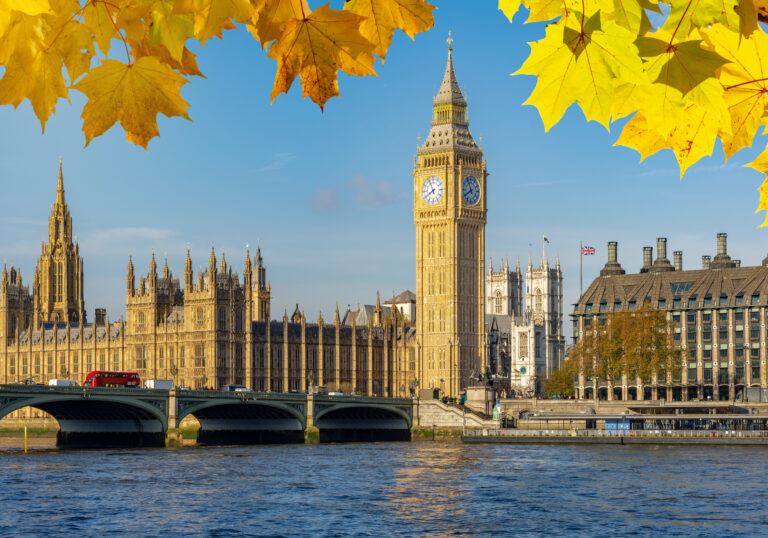
News in Review
| UK GDP grew 0.1% in Q3, with a major production halt and weak services weighing on economic momentum | Housing activity slows as buyers and sellers await Budget clarity, though many surveyors expect sales to recover next year | COP30 brings progress on clean energy finance, with new UKEF agreements supporting global transition and net zero goals |
“This month’s Budget is a make-or-break moment for business”
The Office for National Statistics (ONS) has released the final GDP figures ahead of the Autumn Budget. The data shows that economic growth was slower than expected in Q3 as GDP increased by only 0.1%, a slowdown when compared with 0.3% in the previous quarter.
Analysts had predicted growth of 0.2%, so this lower figure will have come as a disappointment to many, including Chancellor Rachel Reeves. ONS attributed weak growth partly to the cyber attack on Land Rover in September, which halted car production for five weeks. As a result, motor manufacturing was down 28.6% in September, costing the economy an estimated £1.9bn. This likely contributed to the economy contracting by 0.1% in September. Other sectors showed weak growth, with the services sector only increasing by 0.2% in Q3, down from 0.4% in Q2.
Rachel Reeves commented on the news, “We had the fastest-growing economy in the G7 in the first half of the year, but there’s more to do to build an economy that works for working people. At my Budget later this month, I will take the fair decisions to build a strong economy that helps us to continue to cut waiting lists, cut the national debt and cut the cost of living.”
Meanwhile, Stuart Morrison at the British Chambers of Commerce delivered a clear message to the Chancellor, “The lack of strong, consistent growth means this month’s Budget is a make-or-break moment for business – it must deliver for firms across the UK. Our latest survey of over 4,600 businesses shows a quarter have scaled back their investment plans and a fifth are expecting their turnover to worsen over the next year. That’s why we are clear, there must be no more taxes on business in November’s Budget.”
RICS survey reflects subdued housing market
The latest UK Residential Market Survey from the Royal Institution of Chartered Surveyors (RICS) indicates that house buyers and sellers are acting cautiously in anticipation of the Budget. In October, new buyer enquiries recorded a net balance of -24%, down from -21% the previous month and the weakest reading since April 2025. This decrease was seen across the regions. Agreed sales also recorded a monthly decline, falling from -17% to -24%. However, +7% of survey respondents expect sales activity to pick up over the next year.
RICS noted that comments from surveyors across the UK reference a ‘holding pattern’ as the nation delays making major decisions until after the Budget. Higher-end properties in London seem to be particularly sensitive, with multiple agents observing that properties above £1m are facing delays.
RICS Head of Market Research and Analysis, Tarrant Parsons, commented, “The coming months will be crucial in assessing how the market responds to the Budget, which could prove a turning point in either direction. Greater clarity over housing taxation policy may help stabilise sentiment, but if the measures announced add further pressure to activity, they risk deepening the current slowdown.”
COP30 update
COP30 is now well underway, with some significant developments emerging from the annual climate summit. The government’s credit export agency, UK Export Finance (UKEF), has signed a reinsurance agreement with its Brazilian counterpart, AGBF. This is the first agreement of its kind for AGBF and is expected to create new business opportunities in energy transition and infrastructure projects.
UKEF has also secured financial support from HSBC for Hive Energy, enabling the green energy company to expand its solar power projects across Europe, North America, the Caribbean, South America and Africa. This forms part of UKEF’s commitment to provide £10bn in clean growth finance by 2029, thus supporting the government’s goal to make Britain a clean energy superpower by 2030.
In addition, the first progress report of the Net Zero Export Credit Alliance (NZECA) has been released. Created at COP28 in 2023, NZECA comprises export credit agencies from nine different countries. The report shows that four members are reporting measurable emissions reductions and lower portfolio greenhouse gas intensity.
Here to help
Financial advice is key, so please do not hesitate to get in contact with any questions or concerns you may have.
The value of investments can go down as well as up and you may not get back the full amount you invested. The past is not a guide to future performance and past performance may not necessarily be repeated.
All details are correct at time of writing (19 November 2025)